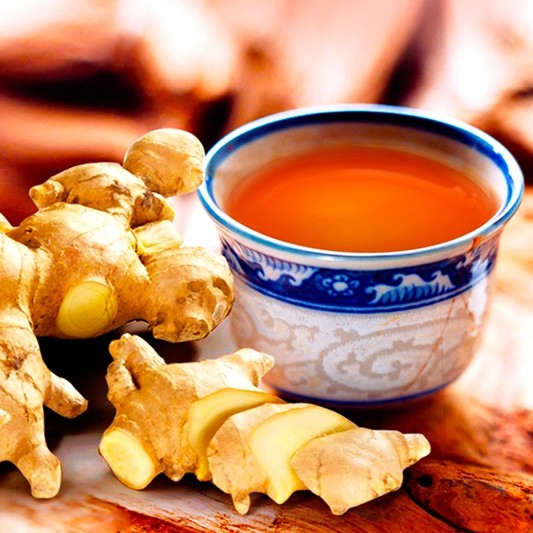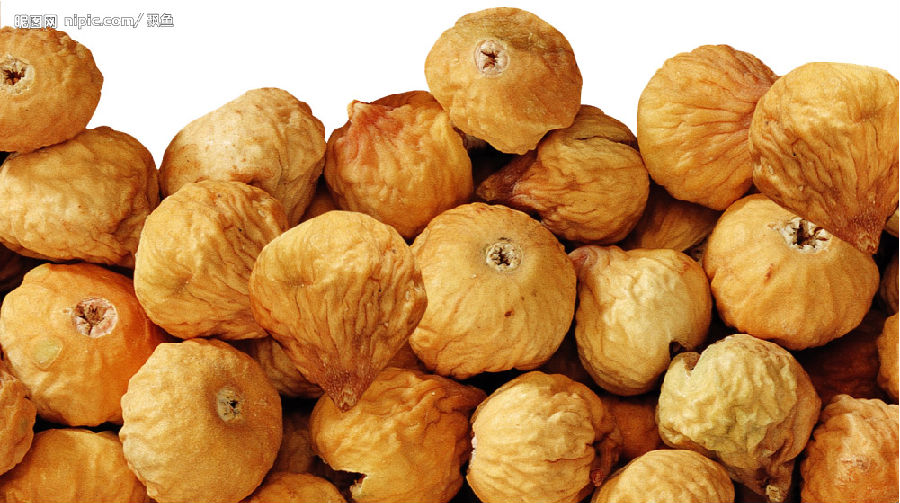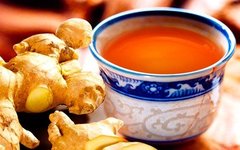(Click on the title below to follow Public Health)
As the saying goes, food therapy is better than medicinal therapy. Some foods not only provide essential energy for the body but also possess unique health benefits and assist in treatment. By consuming these foods correctly, one can stay away from certain diseases.
A banana can alleviate anxiety.
Researchers in the Netherlands found that bananas help reduce psychological stress and alleviate anxiety and depression, making people happier. Dr. Molly Kimball, a registered dietitian at a fitness center in New Orleans, suggests eating a banana when feeling stressed or anxious. A medium-sized banana contains 105 calories and 14 grams of sugar, which can moderately raise blood sugar levels and meet 30% of the daily intake of vitamin B6, helping the brain synthesize more serotonin, thus combating depression and anxiety.
A handful of raisins can lower blood pressure.
Studies have shown that a handful of raisins (about 60 pieces) contains 1 gram of dietary fiber and 212 milligrams of potassium. Potassium can lower blood pressure, and dietary fiber can also reduce the risk of vascular hardening, thereby lowering blood pressure. Both are recommended nutrients for lowering blood pressure by the American “DASH Diet.” Numerous studies indicate that polyphenols found in grapes, raisins, and wine help maintain cardiovascular health. A study conducted by researchers at the Metabolic and Atherosclerosis Research Center in Louisville, Kentucky, found that in patients with prehypertension (blood pressure between 130/80 and 139/89 mmHg), consuming a handful of raisins three times a day for 12 weeks resulted in a reduction of systolic and diastolic blood pressure by 6-10.2 mmHg and 2.4-5.2 mmHg, respectively.
A cup of yogurt can prevent bloating.
A study published in the journal Nutrition Pharmacology and Therapeutics found that 1.5 cups (approximately 368 grams) of probiotic yogurt significantly improve gastrointestinal digestion and absorption. Dr. Kimball states that legumes and lactose are usually hard to digest, and once the intestinal function is impaired, it can easily lead to bloating and gas. Drinking yogurt can help resolve this embarrassing issue. Experts recommend drinking a cup of yogurt about two hours before or after meals, which can be effective for constipation and bloating.
Eight dried apricots can prevent kidney stones.
Dr. Christine Gabustat, a spokesperson for the American Nutrition Association and a comprehensive nutritionist in Florida, states that eight dried apricots contain 2 grams of dietary fiber and 325 milligrams of potassium, with only 3 milligrams of sodium. These help prevent the accumulation of minerals in urine, which can form calcium oxalate stones, the most common type of kidney stones.
Eating tuna can drive away depression.
A can of tuna contains about 800 milligrams of omega-3 fatty acids. Research has found that omega-3 fatty acids help treat depression. Dr. Elizabeth Somer, a well-known nutritionist, states that the American Psychiatric Association has included omega-3 fatty acids in the treatment plan for depression.
A cup of ginger tea can relieve nausea.
Numerous studies have proven that ginger can alleviate nausea symptoms associated with motion sickness (such as car, boat, and plane sickness) and help pregnant women overcome morning sickness. For example, 1/4 teaspoon of ginger powder, 0.5-1 teaspoon of fresh ginger, or 1 cup of ginger tea can effectively stop vomiting. Eating a piece of ginger before traveling by car, boat, or plane, along with taking motion sickness medication, can enhance the effect. Researchers indicate that ginger is both effective and safe for treating nausea without causing side effects like dry mouth and dizziness.

Basil can treat stomach discomfort.
Multiple studies have found that eugenol in basil (also known as Ocimum basilicum) can alleviate symptoms such as abdominal pain, nausea, stomach cramps, and diarrhea by killing bacteria like Salmonella and Listeria. Dr. Mildred Matfield-Bieman, head of the Department of Nutrition at Saint Louis University, states that basil’s antispasmodic effects are significant, and fresh crushed basil can be added to sauces and salads.
Eating pears helps lower blood lipids.
A medium-sized pear contains 5 grams of dietary fiber, most of which is in the form of gel. This type of dietary fiber helps “wash away” the “bad cholesterol” (low-density lipoprotein) in the body. Elevated levels of bad cholesterol are a major risk factor for heart disease. Recent studies by American nutritionists found that consuming 10 grams of cholesterol-lowering dietary fiber from foods like pears can meet 40% of the daily dietary fiber requirement.
Two tablespoons of honey can treat cough.
A study from Pennsylvania State University found that two teaspoons of honey are more effective than over-the-counter cough medicines in relieving children’s coughs. Dr. John Lapuma, director of the Chef Clinic in California, states that honey’s antioxidant and antibacterial properties help alleviate throat inflammation and swelling.
Eating cabbage can prevent stomach ulcers.
Research from Johns Hopkins University School of Medicine found that nutrients in cruciferous vegetables like cabbage can effectively kill Helicobacter pylori, the culprit behind stomach and digestive tract ulcers. The study also found that eating more cabbage can help inhibit digestive tract tumors. Consuming 1 small cup (approximately 91 grams) of cabbage provides only 34 calories but delivers 3 grams of dietary fiber and a large amount of vitamin C, meeting 75% of the daily vitamin C requirement.
Eating turkey can relieve insomnia.
Tryptophan is an important amino acid that helps the body produce serotonin and melatonin, which regulate sleep. Multiple studies have shown that people with insomnia have low levels of tryptophan, while turkey and chicken are rich in tryptophan. Eating 85 grams of turkey meat daily can meet the daily requirement for tryptophan.
Four figs can prevent hemorrhoids.
Dr. Elizabeth Somer states that four dried figs contain 3 grams of dietary fiber, which can soften stools and prevent the recurrence of hemorrhoids. The potassium and manganese in figs can meet 5% and 10% of the daily intake, respectively.

A cup of orange juice can relieve fatigue.
Dr. Gabustat states that drinking a cup of orange juice daily can quickly eliminate fatigue, with fructose playing a key role. Numerous studies indicate that the abundant vitamin C in orange juice can combat oxidative stress caused by free radicals, providing energy to the body. Vitamin C also plays a crucial role in iron metabolism, thereby effectively increasing blood flow and oxygen transport.
Garlic inhibits fungal infections.
Research has found that allicin, a special substance in garlic, has inhibitory effects on fungi. Multiple studies also indicate that thyme, clove, and orange essential oils are effective fungicides. Experts recommend adding garlic paste to sauces and salads for consumption.
Drinking chamomile tea can relieve heartburn.
Dr. Dale Belisfield, a clinical herbalist in New Jersey, states that chamomile can alleviate symptoms of gastrointestinal inflammation, spasms, and bloating. Adding 2 teaspoons of chamomile to approximately 280 grams of boiling water, covering it, and steeping for 20 minutes can be consumed several times a day to relieve heartburn discomfort.
Eating potatoes can quickly relieve headaches.
A medium-sized potato contains 37 grams of carbohydrates, which can alleviate headache symptoms by increasing serotonin levels. Headaches after drinking can be relieved by eating potatoes. This is because excessive drinking can lead to dehydration and loss of potassium, causing an electrolyte imbalance. Therefore, consuming potassium-rich foods like potatoes and bananas can alleviate hangover headaches. Eating potatoes is better than bananas after drinking, as potatoes contain a higher potassium content.
—————————–
Sharing a refined life is essential:
Click the upper right corner “Share to Moments” to share health with your concerned family and best friends.
————–
[About Us]
Public Health magazine
Supervised by the National Health and Family Planning Commission
Organized by the Health Newspaper

Weibo: @Public Health
Sina Weibo: @Public Health Magazine Official Weibo
WeChat: dazhongjiankangzazhi
Welcome to subscribe by mail, postal code: 2-234
Price per issue: 12 yuan

